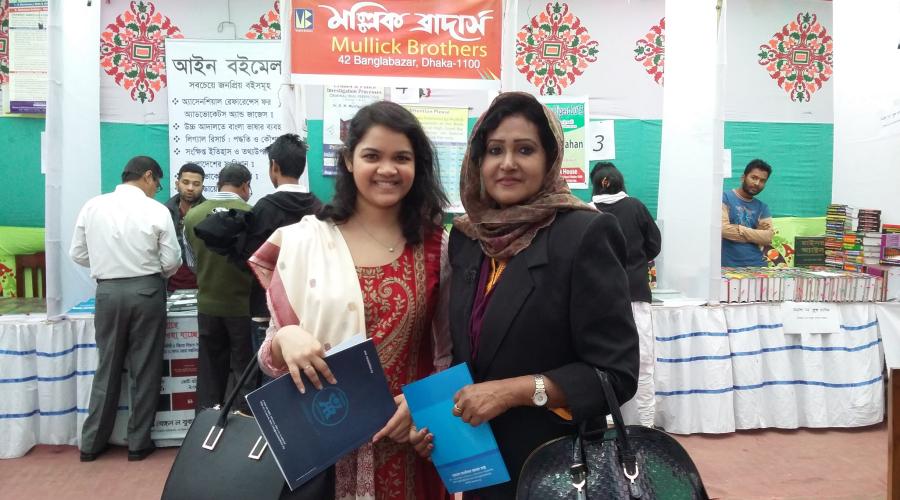
Mahrusah Zahin
In January of 2016, I traveled to Bangladesh to work with Chancery Chambers to study the local labor law for two weeks. Labor law has been an issue in Bangladesh for a long time and has been highlighted as a problem recently. A string of factory collapses and fires in the past few years has left workers risking their lives each day they go to work.
The objective of the internship was to understand why there were so many labor rights violations in the country. I did this by dissecting the written Labor Code to analyze its merits and its shortcomings and applied it directly to the case of factory workers. Labor rights in most developed nations center around the rights of the worker in relation to his employer, such as the right to minimum wage or the right to collectively bargain. It can be safely assumed that most do not worry about the building safety of their workplace. However, as the Tazreen Fashions fire and the Rana Plaza collapse – amongst others – have shown, building safety is a vital aspect of a Bangladeshi worker’s rights that needs to be addressed.
To secure the proper permits for a factory building, I learned that there are many steps. The soil first has to be tested, which then has to be approved safe for a building – either residential or commercial. Many factory owners evade this law by getting approved to build a two-story residential structure, but instead build a six-story factory. Such buildings just do not have the foundation to carry the weight of a factory. Additionally, the land underneath the Rana Plaza was marshland. Beyond this, the structures do not comply with building safety rules once a structure is built either, such as having a certain amount of fire extinguishers, emergency exits, and cubic feet of air per worker, all of which are included in the Labor Code.
Through this internship, I learned that even though Bangladeshi labor laws have come under heavy fire recently, the country’s Labor Code actually tries to anticipate and properly address most labor rights concerns. The biggest problem lies in the enforcement of these laws. Most tragedies that have occurred in Bangladesh are due to illegal circumventing of the law.
This trip taught me that to tackle any problem in the developing world requires a multi-faceted approach. The ILR travel grant allowed me to research what I had learned in class and much more. I hope to build on this experience and next work on ways to incorporate the unorganized labor force in Bangladesh, such as domestic workers and rickshaw pullers, into a formal labor code.